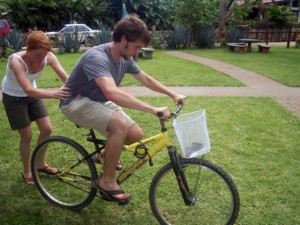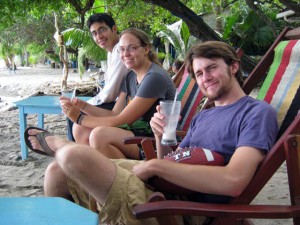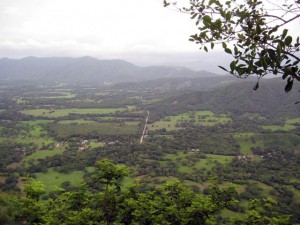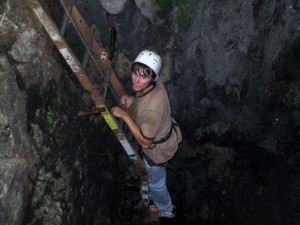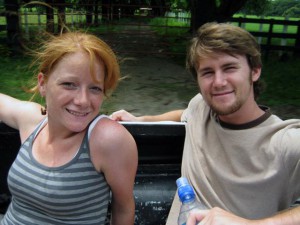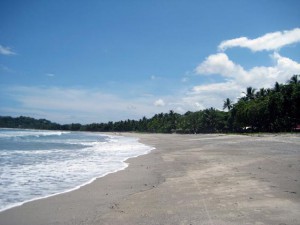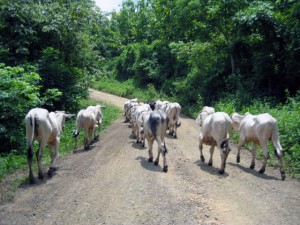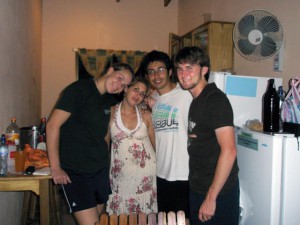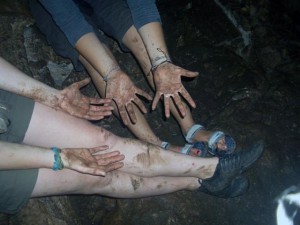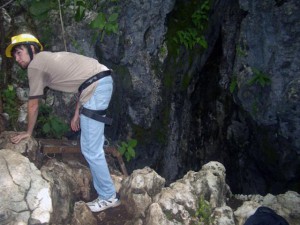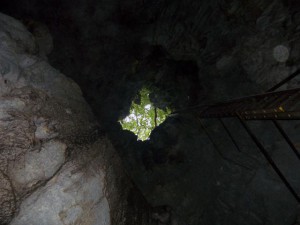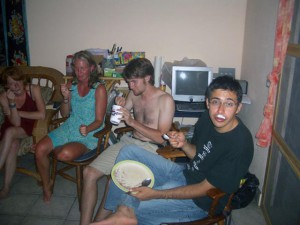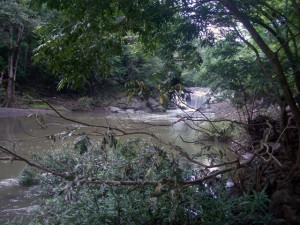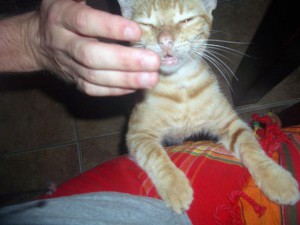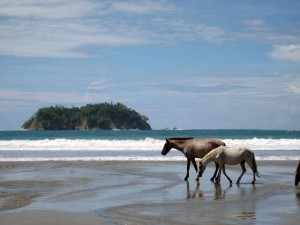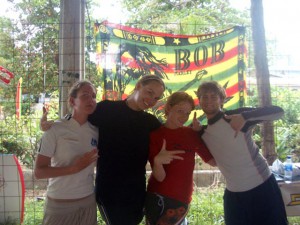What’s turned out to be the most challenging aspect of this volunteer work is the language barrier. I went through a few different stages of adapting to an environment with a language that’s by and large foreign to me. Although I’d taken a Spanish class prior to coming here, we didn’t get much conversational experience. I didn’t realize how difficult comprehending what someone was saying would be. At first, everything was still so new that this didn’t bother me much.

I was focused on the novelty of the experience of being in a different country with a different set of customs.
After a little while, the frustration of not being able to understand what a child was saying to me grew. All I could do was look back and smile, pretending that I knew. The young children didn’t know that I might not know their language well, so they’d keep speaking at a pace that I couldn’t follow. I felt like this blocked me from doing as much as I could. How could I contribute effectively if I couldn’t communicate with these kids?
I came to realize that there are other ways of communicating besides the verbal, and that I could contribute nonetheless. After I accepted the fact that I would not always be able to understand a child, a weight lifted off my shoulders. I could focus on other ways of being there for them as a volunteer. Just by smiling and playing around with them, I found some of my most rewarding times here. I feel like children can recognize true compassion and caring when it’s given to them, and this is something that goes across language and cultural boundaries. Hearing kids in my class call my name as I biked around town, or getting hugs from them at the end of class proved to be some of the most valuable gifts I received from my volunteering efforts. Sometimes I look back at the time I had with them and wish I could’ve only taught them more, or taught them better, but I realize there were limitations to what I could do.
I like to think that my contributions as a volunteer can’t simply be measured by the number of words the children learned, but moreso by the genuine regard and respect that I gave them.
Besides my volunteer work here, I’ve had plenty of free time to spend contemplating, comisserating, and elating. I feel like being away from home for a period of time like this has provided me with a good distance from the things that are most comfortable to me. A lot of the time, this could be a challenge for me as I felt homesick. I longed for my girlfriend back home, longed for the comforts of life there, for something familiar. The more I got in this mode of longing, the more I felt separated from my surroundings here. I didn’t want that, though. I knew I only had a limited time here, and I wanted to make the most of it. I couldn’t always shake those thoughts of longing from my head, but I grew accustomed to them being there. This is the longest I’ve been away from home (not counting college), and it’s taught me a lot about my independence. I realized that I do rely a lot on others for my happiness. Some of my favorite moments here were shared with the other volunteers, often over our nightly meals with the great cooking our house mom would whip up for us. Without their willingness to open up and share their lives, this would’ve been a radically different stay. Our coordinator set the tone by being very welcoming to us and eager to make us feel at home. He’s organized a lot of our outings and given us good opportunities to bond through our shared experiences. All the volunteers were very good to me while I was sick too.
I came down with both a sinus and throat infection in my 3rd week here. That week was tough for me, both mentally and physically. The constant feeling of sickness made me feel useless as a volunteer. I did some of my tasks, but I couldn’t muster much enthusiasm for them while my nose was running non-stop. For a couple of days, all I could think about was going home. I knew how much more comfortable I’d be there, and I felt like my purpose here had dried up. I couldn’t enjoy the company of others as I was groggy and irritable from my discomfort. I’d reached a true low. I feared that it’d be awhile before I recovered, and that this sickness would ruin the rest of my trip. Fortunately, I was able to get some medicine from the doctor that cleared up my infections in a few days and I was back in action.
I see getting sick as a positive looking back on it, because I don’t think I would’ve appreciated my last week here as much if I hadn’t been.
Getting my health back made me treasure it even more, and realize how precious my remaining time here would be. I’d lost sight of the fact of how temporary my stay would be here, and in regaining my health, I also regained a more positive attitude.
So I have had my ups and downs here, but I can’t say that’s much different from my life at home. I’ve certainly learned a lot about myself during my time here. I’ve learned that I don’t need to be comfortable to find happiness. I can adapt to environments outside of my usual, and I can find a way to communicate with others even when it may seem impossible at first. I’ve learned that I can let go of my expectations of a situation and work with whatever I’m given at any moment. My volunteering has also reaffirmed my beliefs that in giving, we’re also receiving. It never just goes one way. There’s a connection made in the act of volunteering that is mutually beneficial.
In conclusion, this is an experience that I wouldn’t trade for anything. It’s had its disappointments, it’s had its surprises, but most of all, it’s been real. Coming to another country to volunteer gives you a much more raw perspective on life in that country.
If I’d come simply as a tourist, I’d get exactly what the tourist industry here serves up to visitors.
Instead, I’ve been fortunate enough to be given a glimpse into life in another culture, and my perspective’s broadened from it. Time’s moved slowly for me in Costa Rica, but that’s not necessarily a bad thing. In the US, I think we see time as a commodity. “Time is money” is the saying. But here, I feel that time isn’t as important as the things that we’re engaged in at the moment. It’s a more laid-back life here in Samara surely, but still, I can’t help but hope I bring this view of time with me back home and continue to immerse myself in each moment I’m given.

